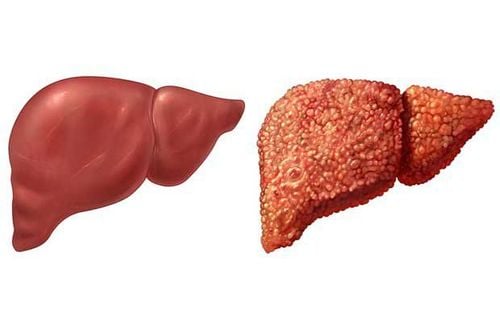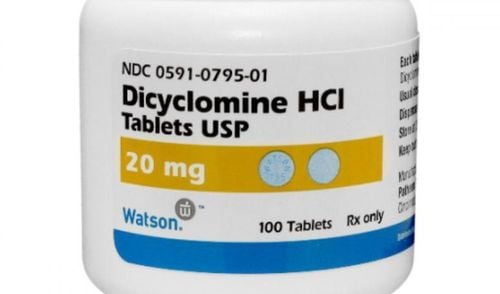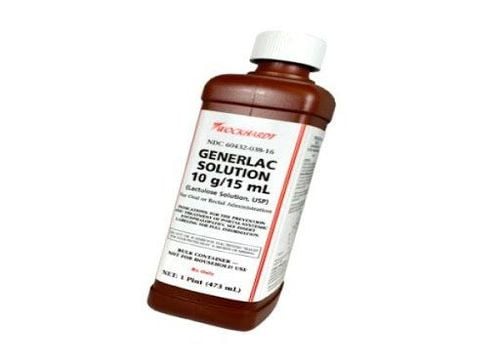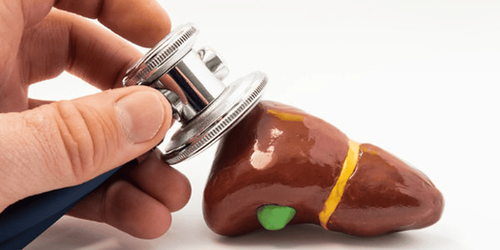This is an automatically translated article.
Liver diseases often cause some systemic symptoms and other abnormalities. Some of the following abnormal symptoms warn of liver diseases.
1. Circulatory abnormalities
Hypotension in liver failure can lead to renal dysfunction. It is not clear what causes the circulatory abnormalities and hypotension to progress to liver failure or cirrhosis. In addition, factors that can lead to cirrhosis include: vasodilation of peripheral arteries, changes in sympathetic tone, effects of endocrine vasodilators, enhanced activity of humoral factors, etc. ..
2. Blood Abnormalities
People with abnormal liver almost always have some blood diseases such as:
Anemia: A common condition in people with liver disease. Some factors affecting anemia include: Blood loss, folic acid deficiency, leukopenia, direct impact of chronic liver disease,...; Leukopenia and thrombocytopenia, accompanied by high blood pressure; Coagulation and coagulation disorders.
3. Endocrine abnormalities
Glucose intolerance, insulin resistance, hyperinsulinemia, and hyperglycemia are common conditions in cirrhotic patients. Elevated insulin reflects impaired liver function. Abnormal thyroid function tests may also reveal changes in the liver's mechanism of regulating thyroid hormones.
Besides, liver disease also affects sexual problems. Chronic liver disease often impairs fertility. Men with cirrhosis, especially alcoholics, often have hypogonadism (with manifestations: Testicular atrophy, erectile dysfunction, reduced sperm count) and feminization (big breasts, physical resemblance to language) ). This condition is more common in people with alcoholic liver disease than from other causes. This suggests that alcohol may be the cause of these problems. In fact, much evidence indicates that alcohol itself is toxic to the testicles.
4. Anemia and electrolytes
Kidney and electrolyte abnormalities are common in people with liver disease. Specifically:
Hypokalemia: May be the result of loss of potassium in the urine. Treatment includes: Oral potassium chloride supplementation, the use of K-reducing diuretics; Hyponatremia: A common condition in people with liver disease. Hyponatremia is usually caused by too much water in the circulatory system or by a loss of potassium. To improve, patients need to limit water intake and add potassium. Intravenous infusion is indicated only if the patient has severe hyponatremia causing convulsions or total hyponatremia is suspected. Intravenous infusion should be avoided in patients with cirrhosis or with fluid retention because it aggravates ascites and only temporarily increases serum sodium levels. Advanced liver failure can also alter the acid-base balance in the body. BUN (blood urea nitrogen) levels that are too low or too high are both signs of liver problems. When gastrointestinal bleeding causes an increase in BUN levels, a normal creatinine value means normal kidney function.
Kidney failure in people with liver disease may reflect the following:
A rare disorder that directly affects the kidneys and liver; Renal hypoperfusion circulatory failure, with or without acute tubular necrosis; Functional renal failure (also known as: Hepato-renal syndrome).

Nồng độ BUN bất thường cảnh báo các bệnh về gan của người bệnh
5. Liver-kidney syndrome
This is a liver disease syndrome with progressive oliguria and uremia, without renal structural damage. This condition is common in patients with fulminant hepatitis or advanced cirrhosis with ascites. The etiology of the disease is still unclear, possibly due to dilatation of the visceral arteries leading to a decrease in systemic circulation. In addition, impaired neurologic or humoral regulation also reduces blood flow to the kidneys, reducing glomerular filtration.
Test results for low urine sodium concentration and benign sediment will help distinguish hepato-renal syndrome from tubular necrosis.
Kidney failure due to hepatorenal syndrome, if left untreated, will progress rapidly, possibly causing death. Some less severe cases cause milder kidney failure. Treatment is usually a combination of vasopressors and volume expanders. Liver transplantation is also a used treatment for this syndrome (further research is needed).
Liver diseases may have the above abnormal manifestations. When there are any warning signs of liver disease, the patient should go to the doctor for an accurate diagnosis and timely and effective treatment plan.
Please dial HOTLINE for more information or register for an appointment HERE. Download MyVinmec app to make appointments faster and to manage your bookings easily.













